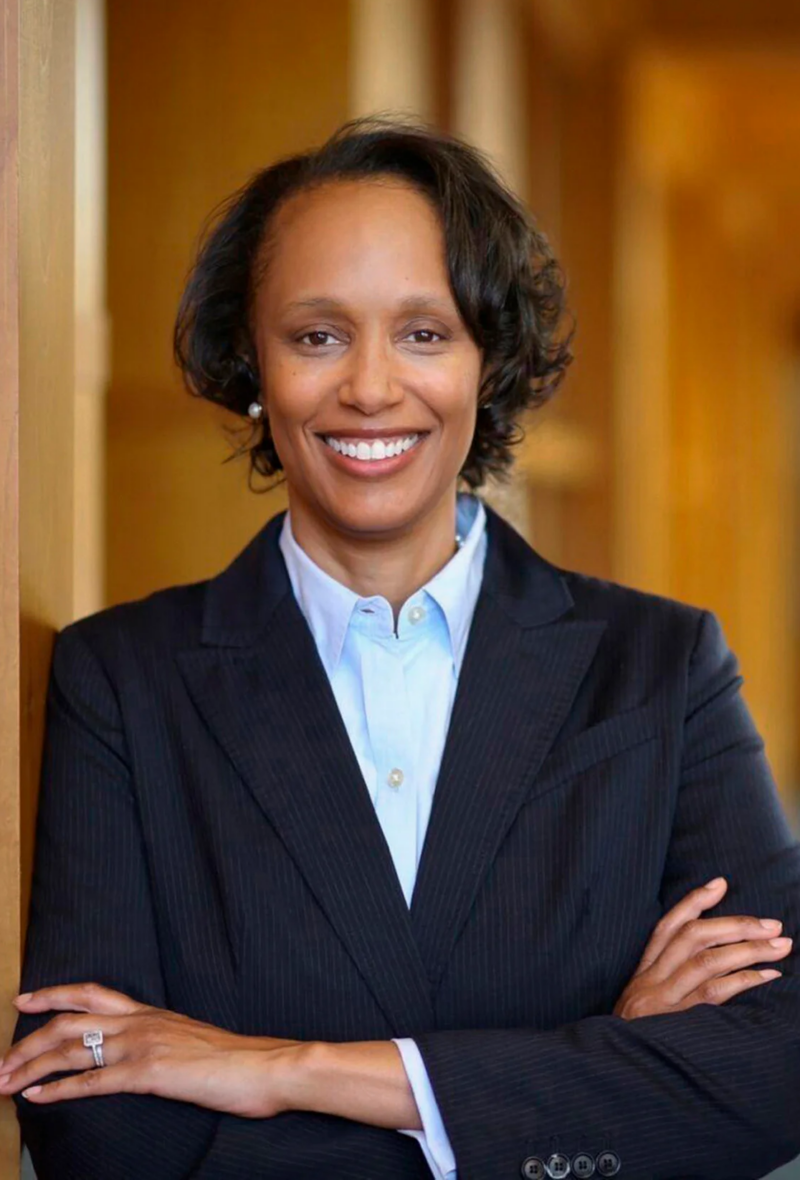In 1973, in the landmark case San Antonio Independent School District v. Rodriguez, the U.S. Supreme Court held there is no constitutional right to education; that responsibility falls to the states. Yet in the 50 years since, states have often failed in providing a quality public education, especially to disadvantaged children, many argue.
Today the COVID-19 pandemic has sparked a growing interest in establishing a federal right to education, says Kimberly Jenkins Robinson ’96, a national expert in education equity, school funding, and education and democracy.
“When they closed the schools, people realized how reliant they are on the schools not just for child care but for moving their children forward to be college- and career-ready,” says Robinson, a professor of law and of education at the University of Virginia, and a professor of law, education, and public policy at UVA’s Frank Batten School of Leadership and Public Policy.
“I am getting more calls from parent groups asking, ‘What can we do to challenge the level of education my child is getting?’ It’s a silver lining that the pandemic has generated new energy for reform.”
“We need a national conversation about the absence of a right to a high-quality education for every child.”
According to a report from the National Assessment of Educational Progress released in October 2022, schoolchildren’s reading and math scores fell during the pandemic, and struggling children fell further behind than ever, says Robinson. The achievement gap between low- and high-poverty schools, which existed before the pandemic, is a result, according to Robinson, of the “opportunity gap.” Children of color, rural children, and those from low-income households aren’t offered the same quality of education as others “because we do not insist that the states provide it,” she argues.
This moment is an opportunity to spark a national dialogue that Robinson hopes will lead to federal legislation guaranteeing a right to high-quality education for all children. “We need federal leadership to move the ball forward,” she says.
In our democratic system of self-government, the stakes couldn’t be higher, proponents insist. In addition to the economic case for educating people so they can obtain good jobs, “consider also the civic needs: Only 36% of Americans can name the three branches of government,” writes HLS Professor Martha Minow in her foreword to “A Federal Right to Education: Fundamental Questions for Our Democracy” (NYU Press, 2019), a volume of essays by leading scholars edited by Robinson. “Nationally authorized education rights could produce more equal opportunities across the country and more protections for vulnerable individuals and groups from neglect or mistreatment in local or state settings,” Minow adds.
Minow also praises Robinson’s leadership in education. “Her knowledge and clarity about education law and reforms are rivaled only by her ability to bridge theory and practice in the field, making both better,” Minow says. “When she brings together scholars and policymakers, real and valuable insights and progress — and publications and initiatives — emerge.”
Since the Constitution provides no explicit right to education, and the current Supreme Court, Robinson says, would be “extremely unlikely to find an implied constitutional right to education,” Congress is the most viable route. She and other proponents are working to consider the best avenues for legislation to guarantee a federal right to a first-rate education for every child in the country.
“We need a national conversation about the absence of a right to a high-quality education for every child, and we need to build a coalition that would enable such legislation to be proposed and passed,” she says.
There is bipartisan support for education as a civil rights issue of our time, Robinson believes, citing the words of recent presidents of both parties. “Whether you can get bipartisan support around legislation remains to be seen,” she says, but having both sides frame it as a critical civil rights issue is encouraging, adds Robinson, who in 2015 published “The Enduring Legacy of Rodriguez: Creating New Pathways to Equal Educational Opportunity” (Harvard Education Press), which she edited with her Harvard Law School mentor, Professor Charles J. Ogletree Jr. ’78.
“I think we are in a moment when we could greatly strengthen our nation’s education system,” Robinson says, “and I could not be more excited about it.”
